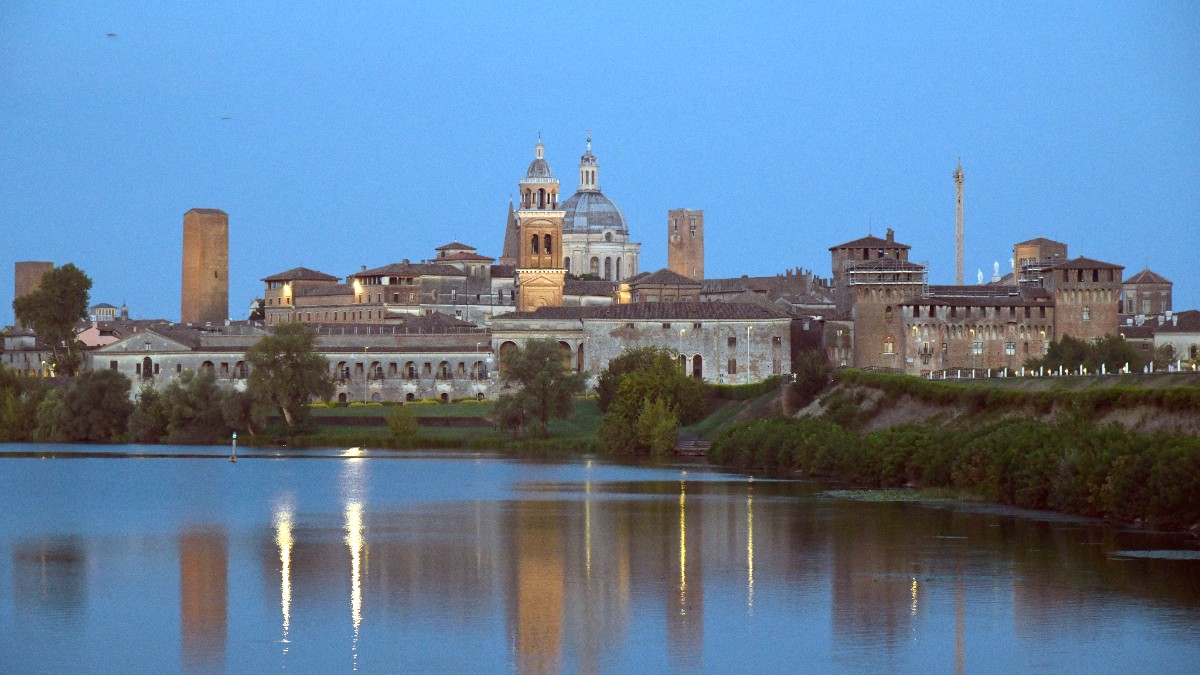
Lombardy And The Lakes, Italy
Mantua's climate typical of the Po Valley, featuring distinct seasons.
Summer humidity truly makes Mantua's high temperatures feel hotter. Plan your activities for cooler morning and late afternoon hours. Seek shade and hydrate. Winter fog can be dense, sometimes impacting travel plans. Check local weather forecasts.
The city undergoes distinct seasonal changes, each offering different advantages and considerations.
Plan your visit around these seasonal rhythms for the best experience.
Late May - Early September
Warmest weather for lake activities, full attraction schedules, long daylight.
High humidity, higher prices, more tourists, some businesses may close for Ferragosto.
April-May & September-October
Mild weather for sightseeing, fewer crowds, lower prices. Cultural events.
Potential rain, notably in autumn. Smaller businesses might have limited hours.
November-March
Fewest crowds, lowest prices. Quiet experience. December brings festive markets.
Cold, foggy weather. Shorter daylight. Attractions may have reduced hours/closures.
A Schengen Visa required for non-EU/EEA/Swiss citizens planning stays up to 90 days within any 180-day period. This visa category applies to tourism, business, or short personal visits. Apply for a Schengen visa through the Italian Embassy or Consulate in your country of residence before your trip. The application process typically involves submitting a form, supporting documents, and attending an interview.
A long-stay Visa (National Visa - Type D) needed for stays longer than 90 days. This applies to purposes like study, work, or family reunion. The application process for a Type D visa is more extensive and varies based on the visa type.
Valid for at least three months beyond your planned departure date from the Schengen Area. Issued within the last 10 years, 2 blank pages.
Provide hotel reservations or an invitation letter if staying with friends or family.
Show evidence you have enough money to cover your stay (bank statements, credit card statements).
Mandatory for Schengen visa. Policy must offer minimum €30,000 coverage. (World Nomads, SafetyWing)
Present a confirmed return ticket or proof of onward travel plans.
Mantua has travel experiences for various budgets.
The official currency of Italy, and thus Mantua, is the Euro (€, EUR).
Tipping not obligatory in Italy, unlike in some other countries.
These figures provide a general guide; actual costs vary based on your spending habits.
| Category | Budget Traveler | Mid-Range Traveler |
|---|---|---|
| Accommodation | Hostel dorm bed or budget guesthouse (€20-€40) | Mid-range hotel or B&B (€60-€100) |
| Meals | Supermarket groceries, street food, budget pizzerias (€15-€30) | Casual restaurant meals, trattorias (€40-€70) |
| Transportation | Walking, local bus tickets (€2-€5) | Public transport, occasional taxi (€5-€15) |
Mantua a safe city, but understanding health and safety practices for a worry-free trip.
No specific vaccinations for entry. Routine immunizations should be current. Consult a healthcare professional.
Common during hot summer. Stay hydrated, wear light clothing, seek shade, avoid midday strenuous activity.
Drink plenty of Bottled water. Use High-SPF sunscreen, hats, Sunglasses outdoors.
Italy has a public healthcare system (SSN).
EU citizens use European Health Insurance Card (EHIC). Non-EU citizens: travel insurance strongly recommended.
Mantua's tap water safe to drink. High food hygiene standards in restaurants and markets.
Main hospital: Ospedale Carlo Poma. Pharmacies (Farmacia) identifiable by green cross sign.
Mantua generally a very safe city, with low crime rates.
Pickpocketing can occur in crowded tourist areas, less prevalent than in larger Italian cities. Keep valuables secure. A Travel money belt useful.
The historic center very safe for walking day and night. No specific neighborhoods known for high crime rates.
Mantua in the Po Valley, which can experience flooding. The city's complex lake system manages water levels. Italy a seismic country; Lombardy generally a lower risk. Minor tremors rare.
Travel insurance highly recommended for all travelers.
Should cover medical emergencies and hospitalization.
Emergency medical evacuation should be included.
Cover for trip cancellation or interruption, and lost/delayed luggage.